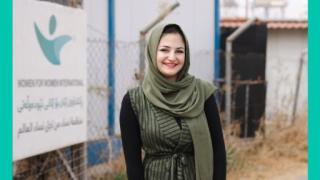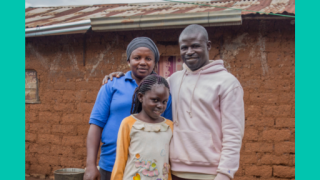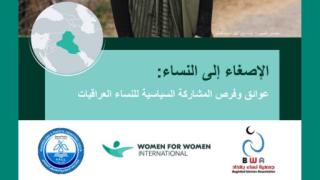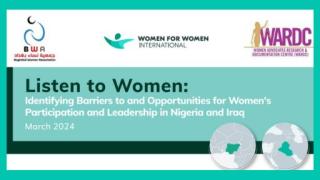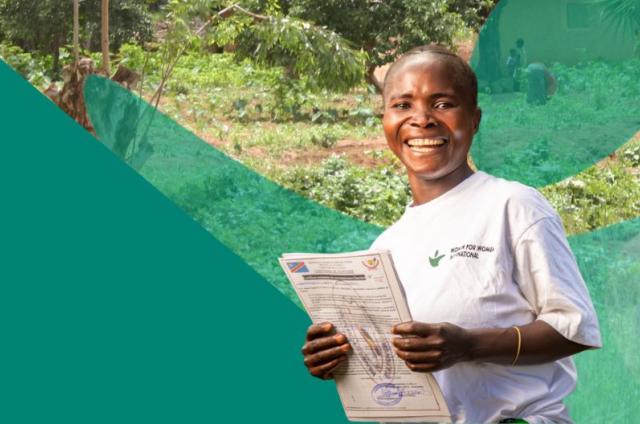Listen to Women Reports
Listen to Women
Research in Iraq and Nigeria, written in partnership with Baghdad Women’s Association (BWA) and Women Advocates, Research, and Documentation Centre (WARDC).
Around the world, women are underrepresented in decision-making in the public sphere including in civic engagement, political participation and leadership, economic and labour participation, and peace processes.
This underrepresentation is often a result of formal and informal barriers that women face when seeking to participate across the spectrum of private to public decision-making spaces. These barriers exist despite women’s fundamental rights to equal participation and engagement in public life and in the decisions and decision-making processes that impact their lives. Without addressing these barriers to participation and rights, we are restricted in achieving our goals of increasing women’s participation.
Women for Women International, in partnership with WARDC and BWA have developed two new reports that expand on the barriers to women’s participation in Plateau State Nigeria and across Iraq. In addition to exploring the interconnected barriers to women’s inclusion and participation in society, these reports show how women are navigating the hurdles to their exclusion in the face of ongoing conflict, shrinking civic space, and the increased backlash against gender equality. These reports set out recommended actions to increase women’s meaningful participation in decisions, spaces, and institutions affecting their lives.
The research developed in both Iraq and Nigeria includes desk research, surveys, focus group discussions and interviews conducted directly with women and with women’s rights organisations on their experiences, efforts, and recommendations for women’s participation and leadership.
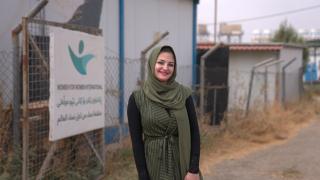
The reports in focus: Iraq
Who did we ask? In Iraq the survey targeted 208 women across a range of ages, religious backgrounds, and ethnicities in Nineveh, Baghdad, Dohuk, and Erbil. The surveys were supplemented by FGDs which were conducted with 41 women in Mosul (12 ), Bartella (17), and Nimrud (12) in the Nineveh Governorate.
What did we hear? Our Iraq report shows that across our surveys the major barriers to women’s participation in Iraq are:
- Lack of government support
- Resource instability
- Women’s lack of understanding of their own right to participate
Although women participate in political work, they often do not have free will and the family men negotiate and decide on their behalf.”

The reports in focus: Nigeria
Who did we ask? In Nigeria our research focused on Plateau State, a region in the middle belt of the country. The survey targeted 249 women. The key informants' interviews (KII) and focus group discussions (FGD) were conducted in six communities across Pankshin, Riyom, and Jos East LGAs in Plateau State in Nigeria.
What did we hear? Our Nigeria report shows that across our surveys and FGDs the major barriers to women’s participation in Plateau State, Nigeria, are:
- A lack of personal awareness of their rights to participate and confidence, often related to their lack of education and economic vulnerability
- Community attitudes and norms that drive gender discrimination, stigma against women’s participation, and gender-based violence
- Structural restrictions that include a lack of government support and restrictions on women’s inheritance and land ownership
In our community, the culture says where there are men; women should not be found there. Even during politics they fix meetings in the middle of the night so that women will not be able to participate.
Listen to Women: Read the Briefs
Identifying Barriers to and Opportunities for Women’s Participation and Leadership in Iraq
subtitle:
Around the world, women are underrepresented in decision-making in the public sphere including in civic engagement, political participation and leadership, economic and labour participation, and peace processes. Read the Iraq research developed in partnership with Baghdad Women's Association (BWA).
Identifying Barriers to and Opportunities for Women’s Participation and Leadership in Nigeria
subtitle:
Around the world, women are underrepresented in decision-making in the public sphere including in civic engagement, political participation and leadership, economic and labour participation, and peace processes. Read the Nigeria research developed in partnership with Women Advocates, Research and Documentation Centre (WARDC).
Listen to Women: Summary
subtitle:
Read the joint summary of the Listen to Women research here.
Suggested Citations
-
Women for Women International, Baghdad Women’s Association, University of Mosul (2024) “Listen to Women: Identifying Barriers to and Opportunities for Women’s Participation and Leadership in Iraq”. Retrieved from [website link]
-
Women for Women International, Women Advocates Research and Documentation Centre (2024) “Listen to Women: Identifying Barriers to and Opportunities for Women’s Participation and Leadership in Nigeria”. Retrieved from [website link]

